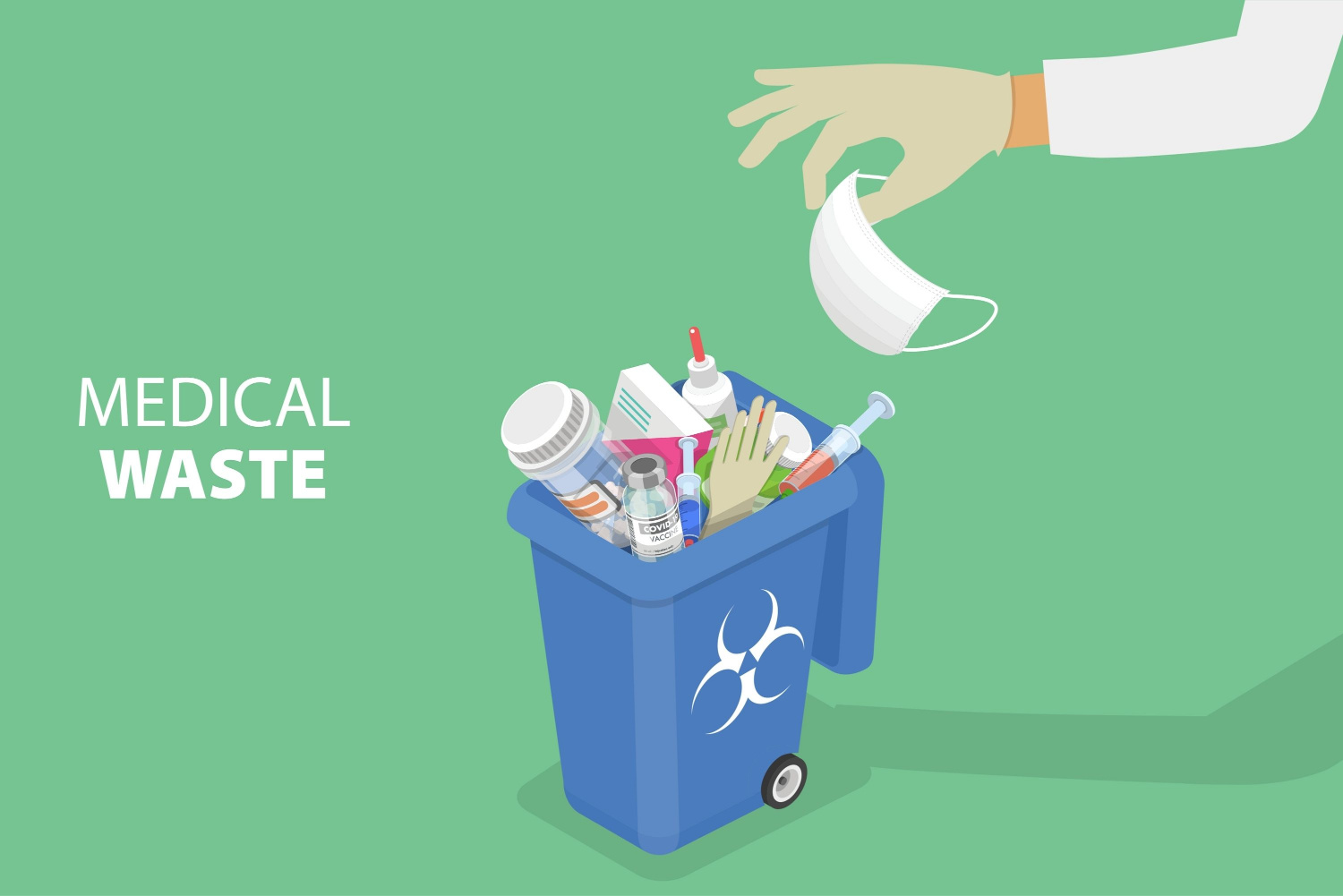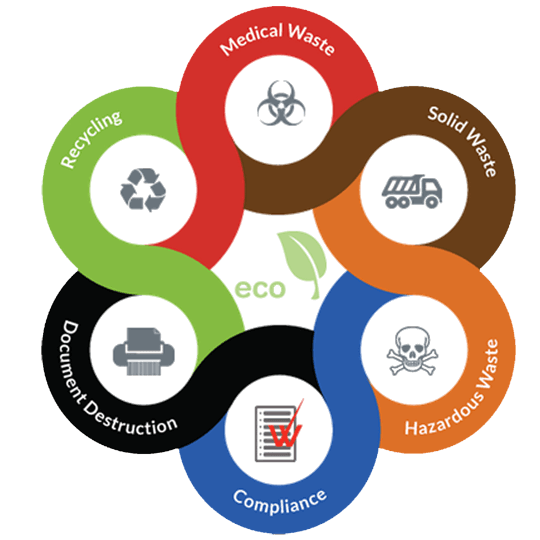Appropriate Disposal Methods for Clinical Waste
Appropriate disposal methods for medical waste are of utmost importance in guaranteeing the security of both health care workers and the basic public. The proper handling and disposal of medical waste is vital to stop the spread of contagious diseases and the contamination of the setting. This introduction will discover the relevance of appropriate medical waste disposal, give guidelines for handling various types of waste, and emphasize the demand for medical care centers to embrace best methods.
Significance of Correct Clinical Garbage Disposal
Proper clinical waste disposal is of utmost significance in order to protect against the spread of infections and safeguard public wellness. Clinical waste refers to any waste created during medical treatments or from the medical care industry.
One of the key reasons for appropriate clinical garbage disposal is to prevent the spread of infections. Clinical waste can harbor various microorganisms, consisting of microorganisms, infections, and various other bacteria that can trigger conditions. Inappropriate disposal can bring about the contamination of surfaces, water sources, and air, enhancing the danger of infections. By securely disposing of medical waste, the possibilities of direct exposure to these virus are dramatically decreased, making certain the security of medical care workers, patients, and the area at large.
In addition, proper clinical garbage disposal is crucial for shielding public health and wellness. Medical waste that is not correctly managed can contaminate dirt, water bodies, and even food sources. This can cause the transmission of conditions to human beings and animals, posing a significant public wellness danger (WasteX Medical Waste Disposal). By complying with proper disposal strategies, such as containment, partition, and therapy, we can decrease the potential threats associated with medical waste and protect the wellness of the community.
Handling and Disposing of Sharps
When it involves the handling and disposal of sharps, adherence to appropriate methods is crucial for making certain the safety of health care workers and protecting against the threat of injury or infection. Sharps include needles, syringes, lancets, and other items with the prospective to cut the skin or pierce. As a result of their possible to send bloodborne microorganisms, such as HIV and hepatitis B and C, it is vital to get rid of and manage of sharps properly.

Disposal of sharps containers ought to follow neighborhood policies and standards. It is best to utilize licensed clinical waste disposal solutions that specialize in the proper handling and disposal of sharps to make sure compliance with guidelines and lessen dangers to healthcare employees and the setting.
Guidelines for Transmittable Waste Disposal
Contagious waste, likewise recognized as biohazardous or biomedical waste, refers to products that are potentially contaminated with infectious representatives or various other harmful substances. Correct disposal of transmittable waste is essential to make sure the security and wellness of health care workers, clients, and the general public.
The guidelines for contagious waste disposal vary depending on the country and neighborhood policies, yet there are some usual techniques that health care facilities ought to adhere to. Firstly, all infectious waste needs to be set apart from other sorts of waste at the point of generation. This aids protect against cross-contamination and ensures that the waste can be taken care of suitably. Transmittable waste should be saved in leak-proof, puncture-resistant containers that are clearly labeled with the biohazard icon. When not in use to minimize the threat of exposure, these containers should be kept closed. Transmittable waste should be transferred and disposed of by licensed waste administration firms that specialize in managing biomedical waste.
It is vital for health care centers to have comprehensive training programs in position to enlighten team on the appropriate procedures for infectious garbage disposal. This consists of training on waste partition, storage space, and managing strategies. By following these guidelines, healthcare facilities can properly manage contagious waste, minimize the danger of infections, and shield public wellness.
Ideal Practices for Drug Garbage Disposal
Drug garbage disposal should constantly be conducted consistently and in accordance with professional standards. Correct management of pharmaceutical waste is important to protect public health and the environment. Drugs can posture a significant threat if not dealt with correctly, as they may contaminate water resources, damage water life, or perhaps add to the development of antibiotic resistance.
One of the best practices for pharmaceutical garbage disposal is to develop a marked collection system within medical care facilities. medical waste removal. This system should consist of different containers for different sorts of pharmaceutical waste, such as ended medications, extra medications, and polluted materials. These containers ought to be clearly labeled and situated in quickly available areas to motivate appropriate disposal by healthcare specialists
In addition, it is vital to inform medical care personnel about the correct handling and disposal of pharmaceutical waste. Training programs should concentrate on identifying various types of pharmaceutical waste, understanding the linked dangers, and complying with the appropriate disposal treatments. Routine reminders and updates must be offered to make certain conformity with disposal standards.
In enhancement to inner practices, healthcare facilities ought to additionally develop collaborations with qualified waste management companies. These business specialize in the collection, transport, and disposal of pharmaceutical waste. By functioning with these professionals, health care centers can guarantee that their pharmaceutical waste is thrown away safely and in conformity with local guidelines.
Conformity With Legal Regulations
In order to make sure compliance with lawful policies, it is imperative for medical care facilities to comply with proper disposal strategies for medical waste. Medical waste postures a considerable risk to public health and wellness and the setting, making it important for medical care centers to take care of and dispose of it according to the legislation.
Governing bodies, such as the Occupational Security and Health Management (OSHA) and the Environmental Defense Agency (EPA), have actually developed standards and demands for the appropriate disposal of clinical waste - WasteX Medical Waste Disposal. These laws intend to secure medical care employees, waste management personnel, and the general public from potential risks related to medical waste

Non-compliance with legal regulations can result in severe consequences for healthcare centers, consisting of fines, legal liabilities, damage to credibility, and possible injury to public health. It is vital for medical care facilities to remain updated with the latest regulations and continually monitor and boost their waste administration techniques.
Verdict
Finally, proper disposal methods for medical waste are crucial to make sure the safety of medical care workers, patients, and the atmosphere. Complying with standards for handling and disposing of sharps, transmittable waste, and pharmaceutical waste is necessary. Compliance with lawful policies Discover More Here is essential to avoid the spread of infections and secure public health. It is essential that health care centers preserve strict procedures for the proper disposal of medical waste to decrease risks and preserve a safe health care setting.
Medical waste refers to any kind of waste produced during medical treatments or from the healthcare market. Transmittable waste, additionally recognized as biohazardous or biomedical waste, refers to products that are possibly infected with transmittable representatives or various other hazardous compounds. All transmittable waste needs to be set apart from various other kinds of waste at the factor of generation. Contagious waste needs to be carried and disposed of by accredited waste administration business that specialize in managing biomedical waste.
Sticking to standards for taking care of and getting rid of of sharps, contagious waste, and pharmaceutical waste is necessary. (medical waste disposal service)